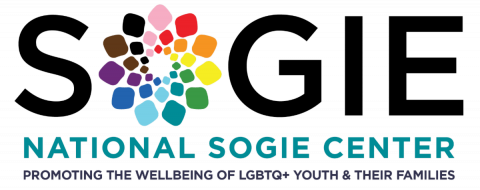SECTION ONE
Take Care of Yourself as You Work Through This Guide
As you work through Coming Out with Care, remember that it's okay to take things at your own pace. The process of coming out can be emotionally intense, and it's important to prioritize your mental and physical well-being. If you ever feel overwhelmed, take breaks—step away, breathe, and give yourself permission to pause when needed. You might also find it helpful to skip ahead to some of the fun and lighthearted activities in the guide for a brain break, offering yourself moments of joy or relaxation. Above all, if you ever feel like you need support or someone to talk to, don't hesitate to reach out for help. Crisis support services or counselors are available to listen, guide, and support you through difficult moments. Taking care of yourself throughout this journey is crucial, and remember, your well-being comes first. Below are some crisis services that are LGBTQIA2S+-affirming. Coming out is your journey: You get to decide the right way and right time.
The Trevor Project
Provides 24/7 crisis intervention and suicide prevention for LGBTQIA2S+ youth.
- 1-866-488-7386
- Text "START" to 678-678
- thetrevorproject.org
Trans Lifeline
A peer support service for the transgender community offering crisis intervention, emotional support, and resources. The hours for this hotline are 1:00 p.m.–9:00 p.m. ET.
- 1-877-565-8860
- Text "START" to 678-678
- translifeline.org
LGBT National Help Center
Provides hotline and chat support for the LGBT community. The center also provides a youth talkline. The hotline is available Monday to Friday from 4 p.m. to 12 a.m. ET and Saturday from 12 p.m. to 5 p.m. ET.
- 1-888-843-4564 (General)
- 1-800-246-7743 (Youth)
- lgbthotline.org
SAGE LGBTQ+ Elder Hotline
Provides 24/7 support for LGBTQIA2S+ older adults, offering a confidential helpline for assistance with issues related to aging, isolation, and crisis intervention.
We're Glad You're Here
We're so glad you found this guide! If no one has told you yet, coming out is a powerful personal moment in one's life. As you figure out who you are, you get to explore, try things on, and figure out what does or doesn't suit you. You know you best, and that is what the journey of coming out is all about—getting to know the most authentic version of yourself. This experience can be full of joy, creativity, and excitement, as well as new relationships, interests, and adventures. We hope this guide helps you navigate coming out in ways that keep you safe, happy, and healthy.

The fact that this process is hard is not because of you
We also know that coming out is not always a positive or easy process. Unfortunately, it can be a challenging experience and journey when the people around us don't understand, don't feel like we know ourselves best, or may even have harmful reactions to our identities. Let us be clear, the fact that this process can be hard is not because of you. There is actually nothing wrong with you. In fact, you are doing something for yourself that is healthy and part of human development, that is proven to improve your overall mental health and well-being.
Coming out can be hard because of generations of misinformation, discriminatory policies (some of which have exploded in prevalence since 2022), and people's own personal struggles with conscious and unconscious shame. When people have negative reactions and responses to others being authentic, it is their own stuff they are dealing with; it does not mean that there is something wrong with you. Sometimes the people who love us most may have these negative reactions and that can be hurtful and confusing.
With all of this in mind, we wanted to create a guide to help you think about the process of coming out—both the joys and the challenges—so you could be as prepared as possible to make this leap into being the most you that you can be. You will find questions to assess who is in your support network now and what risks there might be, whether in relationships, resources, or future goals and dreams. Then we’ll cover questions you may want to reflect on, responses to help protect your joy and peace as you navigate conversations, and how to take care of yourself throughout this journey. There are likely resources in your community and, if not, online. We’ll share those as well.


